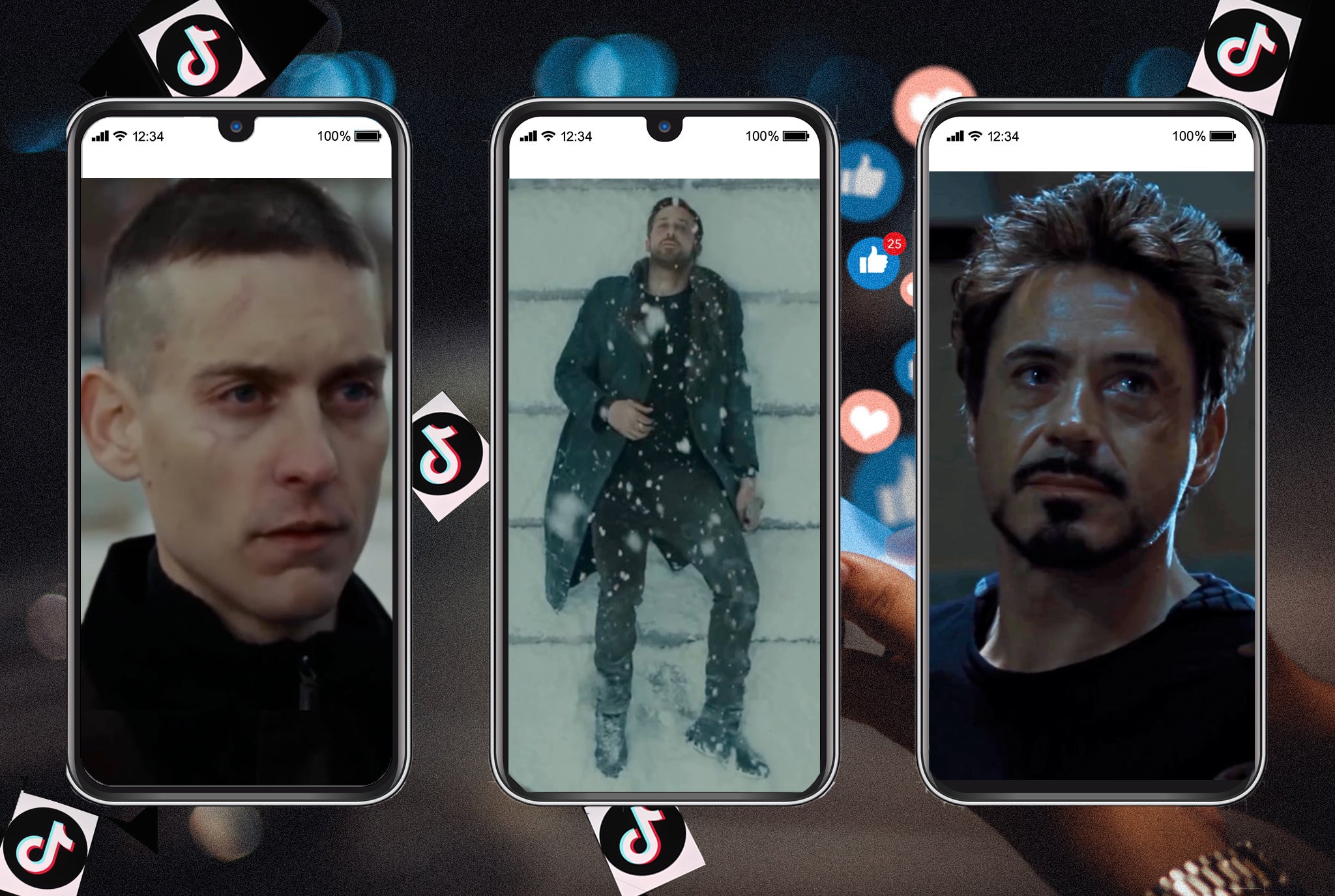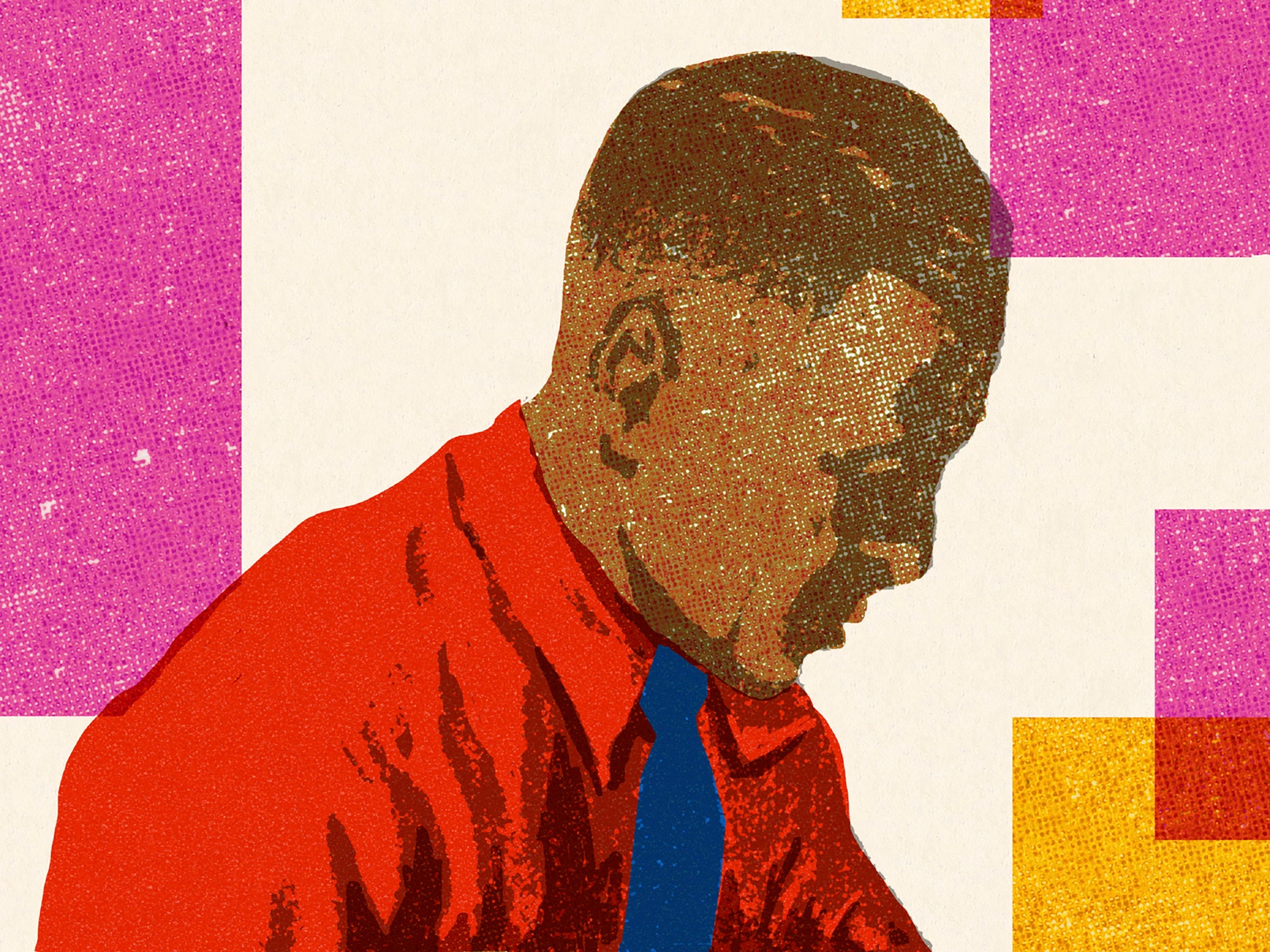Sad Boy TikTok is grappling with male mental health: ‘Not sad, not happy, just empty’
Content aimed at sad men is getting millions of views on social media. Is this a new form of therapy? asks Richard Hall

Your support helps us to tell the story
From reproductive rights to climate change to Big Tech, The Independent is on the ground when the story is developing. Whether it's investigating the financials of Elon Musk's pro-Trump PAC or producing our latest documentary, 'The A Word', which shines a light on the American women fighting for reproductive rights, we know how important it is to parse out the facts from the messaging.
At such a critical moment in US history, we need reporters on the ground. Your donation allows us to keep sending journalists to speak to both sides of the story.
The Independent is trusted by Americans across the entire political spectrum. And unlike many other quality news outlets, we choose not to lock Americans out of our reporting and analysis with paywalls. We believe quality journalism should be available to everyone, paid for by those who can afford it.
Your support makes all the difference.The video opens with a close-up of a man’s face as he drives along a rural road. He watches a giant logging truck rumbling along ahead. His face lights up with a knowing smile. He imagines, contemplates, and welcomes the prospect of death, all within 11 seconds.
“Me too bro, me too,” writes one in the hundreds of comments underneath the TikTok, which has over 2.2 million views. “I’ve never felt more connected to another human being,” adds another. “We’re tired,” yet another writes.
The viral video, a reference to a gruesome death scene from Final Destination 2, is part of a growing genre of content that grapples with themes of male sadness.
Social media has provided an outlet for frank discussions about mental health for years, but men have often been absent from these spaces. Today, videos on the subject are racking up millions of views.
Men smiling through their pain is a running theme in the videos, along with isolation and loneliness. One account posts a video every day of Jake Gyllenhall crying into the phone when someone asks if he is okay. On another, the words “average male experience” flash across a scene from a video game of a man stumbling through fog.
There’s this idea among men that we’re alone in our suffering because we’ve been told to keep these things in for so long
The comment sections of these videos are deluged with men expressing empathy or seeking solace, like a form of alternative therapy for those who may otherwise avoid it.
“I think it shows you that there are millions of guys out there that are really hurting,” JR Harvey, men’s mental health creator with 1.6 million followers, tells The Independent.
“They feel lost in our society right now. They feel like they don’t have anyone to talk to, or anyone who will acknowledge their problems,” he adds.
Harvey, who has some 1.6 million followers on his Instagram account, started making men’s mental health content shortly after the pandemic. He had lost his job and was going through a rough period, and as he struggled himself, he started to see these types of videos more often.
“The algorithm knows us better than we know ourselves,” he says.
Harvey’s videos explore male loneliness, expectations of masculinity and fatherhood. Often they feature scenes from movies and TV shows of men expressing emotions, accompanied by moody music and captions like: “Not sad, not happy, just empty.”
“Some people would joke around with me and call it Sad Boy TikTok,” Harvey says.
Other creators in the genre address topics such as suicide with little or no filter. Their pages are filled with dark, often cinematic works of art.
The content differs between videos in style and tone, but all of it is based on the idea that men are not okay.
Bryce Spencer-Jones, a mental health advocate and podcaster with more than 800,000 followers on TikTok and Instagram, says men are drawn to this type of content online because they feel like they don’t feel comfortable sharing their feelings in their real lives.
“Breaking out of that stigma and letting people know what you’re going through is valid. It’s a way to shift that cycle a little bit and open up the conversation,” he tells The Independent.
That stigma can be deadly for men.
Nearly 1 in 10 men experience depression or anxiety, according to Mental Health America, but less than half will receive treatment. Suicide rates are nearly four times higher among men than they are among women, despite the rate of mental illness being lower.
Spencer-Jones knows this from personal experience. He lost his friend to suicide a few years ago.
“The best way to change is to first bring awareness to it,” he says. “That’s what I try to do with my social media.”
Experts say the reluctance by men to seek help can be partly explained by societal pressure to “toughen up” rather than speak openly about their feelings. That creates a doom loop whereby men feel increasingly isolated because they are sad, and increasingly sad because they are isolated.
“There’s this idea among men that we’re alone in our suffering because we’ve been told to keep these things in for so long,” Thomas Austin, a Denver-based therapist who specializes in men’s mental health, tells The Independent.
“How many times are young men told to pull themselves up by their bootstraps or ‘man up’ when they express emotions?” he adds.

Austin says a culture of comparison on social media has exacerbated these feelings. Content aimed at men is either centered around making them feel inadequate for not owning a Ferrari — as exemplified by toxic masculinity influencers like Andrew Tate — or leans towards depression and sadness.
“You won’t see a father with a healthy work-life balance coming home and playing with his kids because it’s just not exciting and engaging,” Austin says. “And a lot of the apps and media sources really don’t care what’s healthy.”
Instead, the online content ends up being two sides of the same coin. “I think the two fuel each other: Work really hard. Get burned out. Be depressed for a while. Be depressed for a while. Get some motivation. Work way too hard,” Austin adds.
Harvey, at least, hopes he can lead the men who gather in his comments to a more healthy space. He has created a separate community on the Discord messaging app of around 1,700 people. He holds a weekly call for his followers where men can talk to each other about their feelings. He says around 150 men turn up each week.
He has also found some comfort in the process of creating the videos.
“I think the act of creating is very therapeutic in general — just being able to express yourself. I think it was something that was missing in my life before,” Harvey says. “It just opens up different doorways in your mind.”
If you are based in the USA, and you or someone you know needs mental health assistance right now, call the National Suicide Prevention Helpline on 1-800-273-TALK (8255). The Helpline is a free, confidential crisis hotline that is available to everyone 24 hours a day, seven days a week. If you are in another country, you can go to www.befrienders.org to find a helpline near you.
If you are in the UK and are experiencing feelings of distress and isolation, or are struggling to cope, The Samaritans offers support; you can speak to someone for free over the phone, in confidence, on 116 123 (UK and ROI), email jo@samaritans.org, or visit the Samaritans website to find details of your nearest branch.

Join our commenting forum
Join thought-provoking conversations, follow other Independent readers and see their replies
Comments